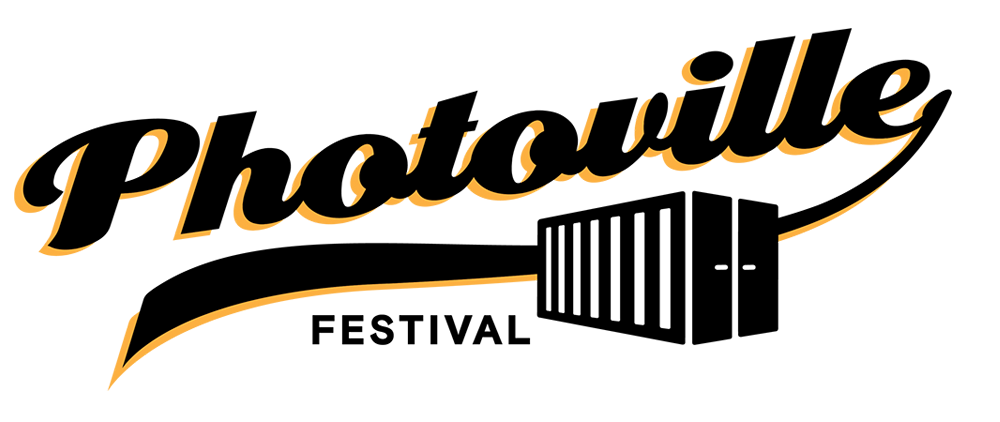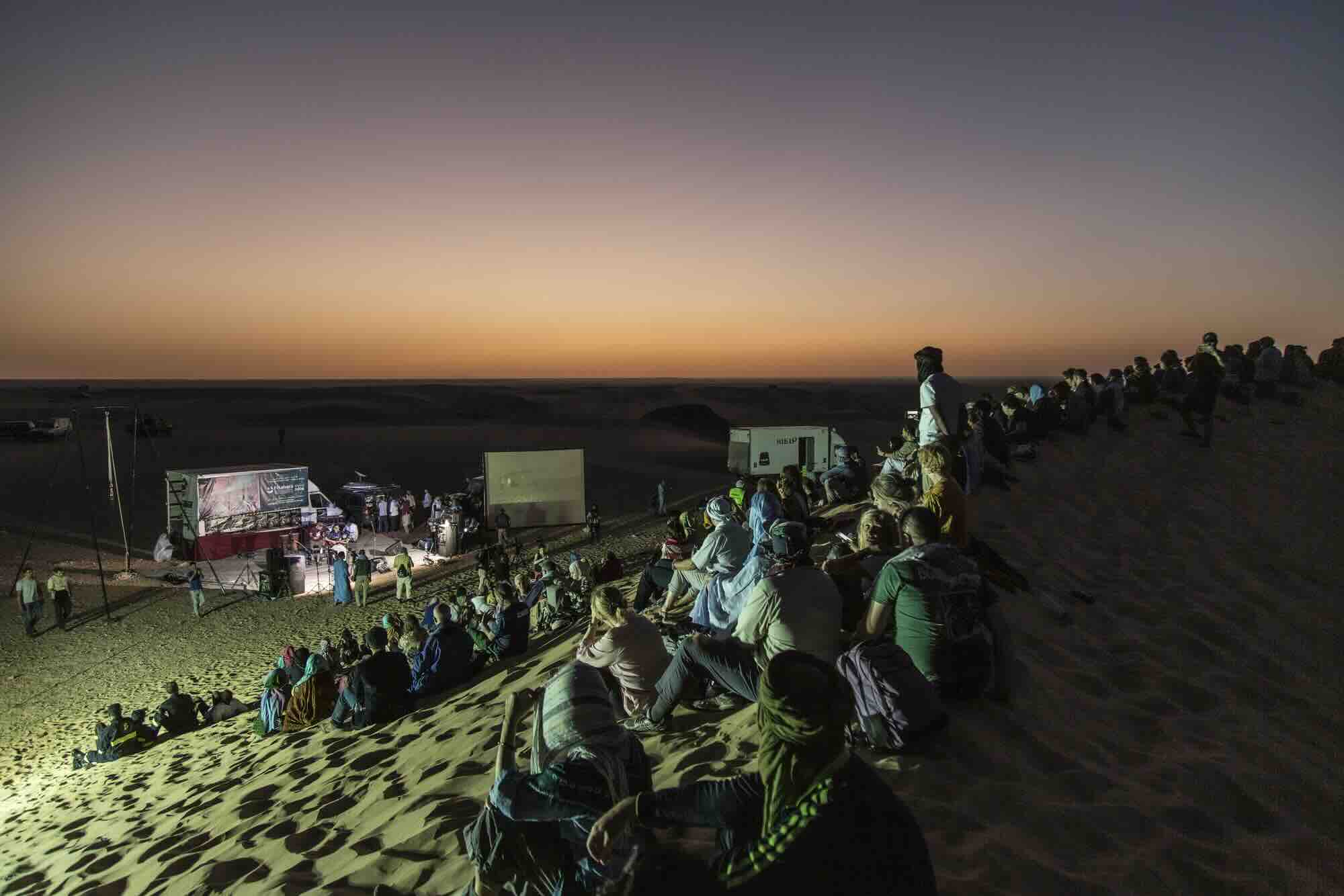

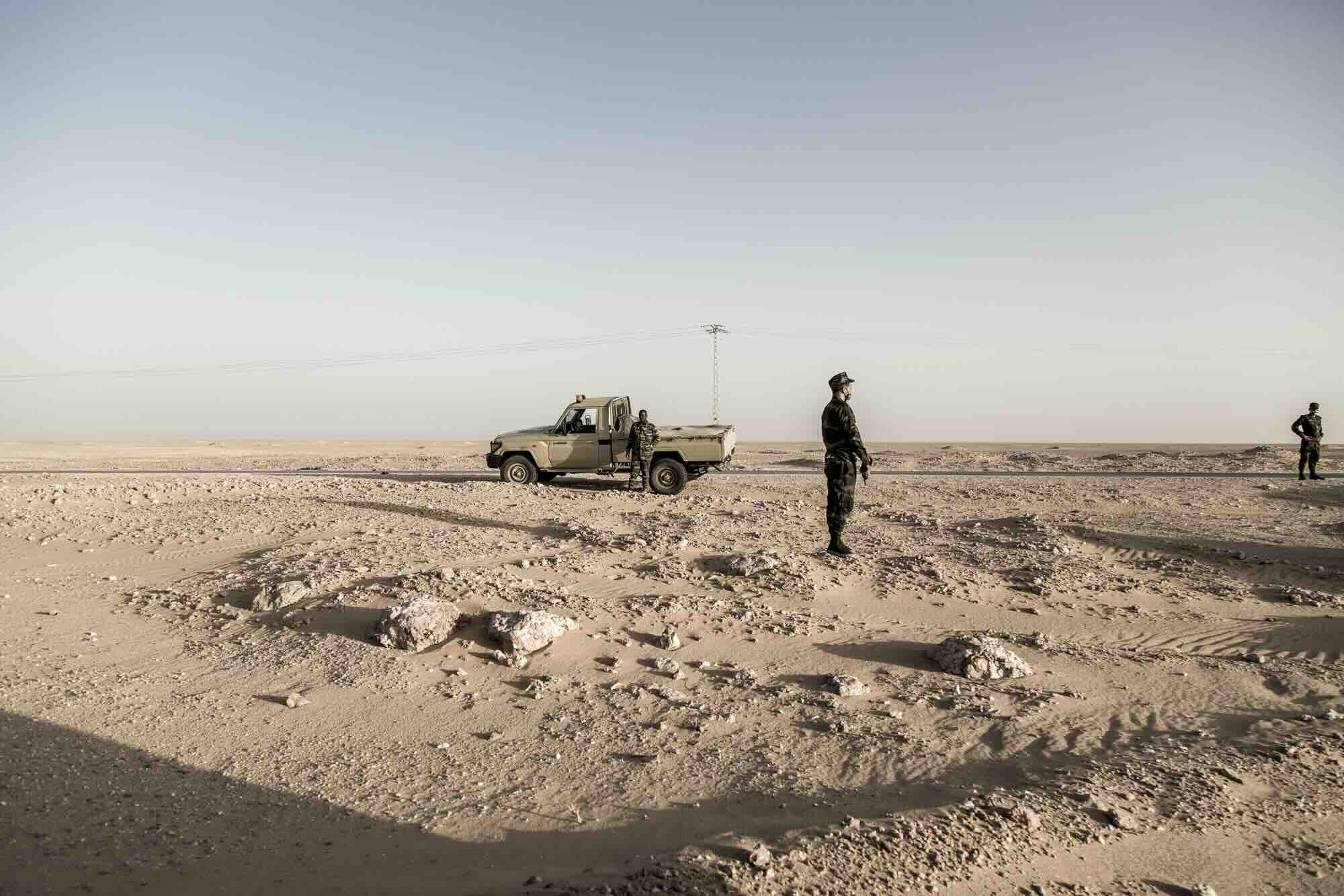
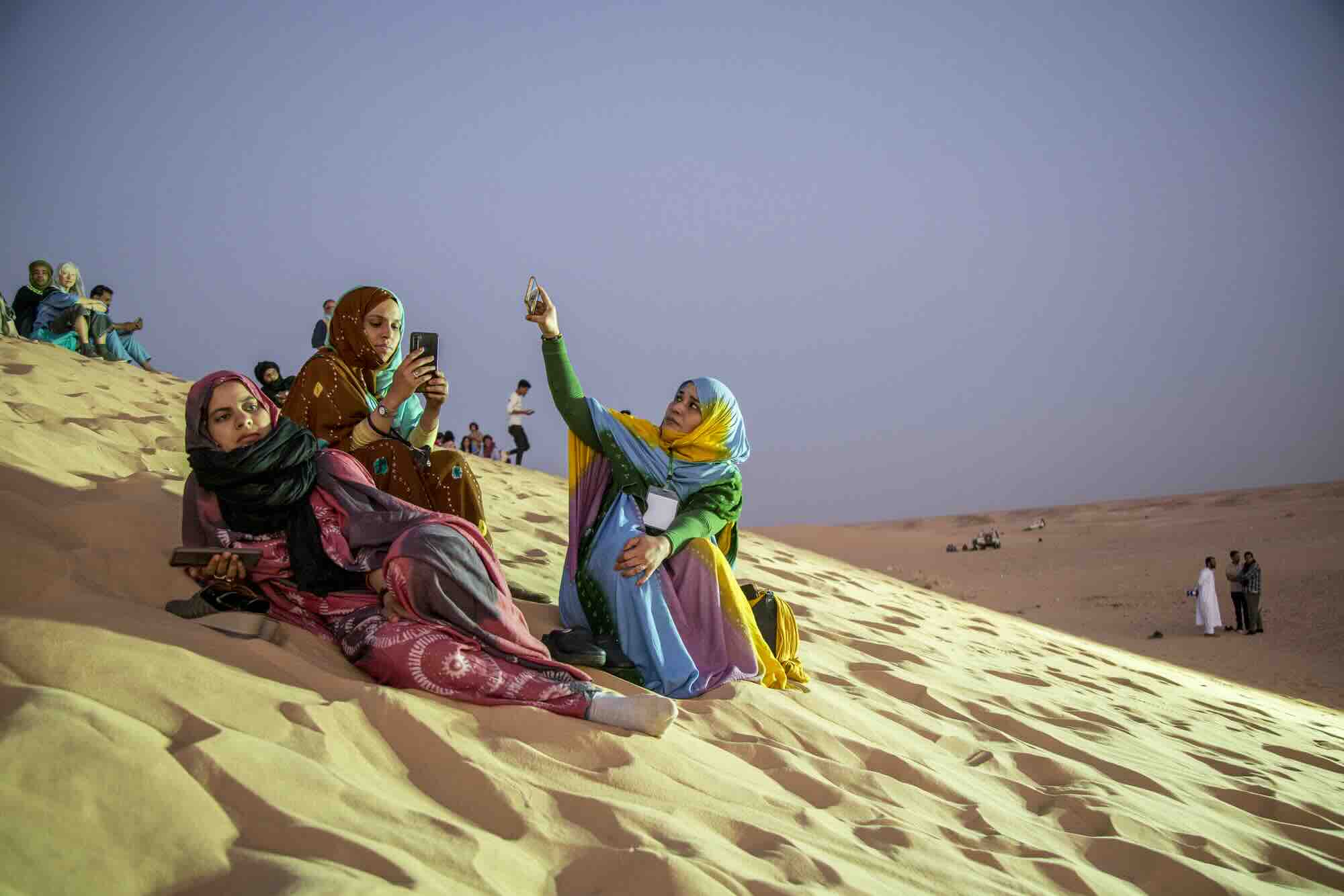
In the heart of the Sahara in Southern Algeria, the FiSahara Human Rights Film Festival celebrated its 18th edition in 2024. Set in the Sahrawi refugee camps, this unique festival transforms one of the most remote and challenging environments on Earth into a beacon of cultural resilience and human rights advocacy. Through films, workshops, and panel discussions, FiSahara highlights the struggle of the Sahrawi people for self-determination while fostering creativity and solidarity.
Once a Spanish colony, Western Sahara became a site of contention after Spain’s withdrawal in 1975. Morocco and Mauritania both laid claim to the territory, igniting a conflict with the Sahrawi independence movement. Mauritania withdrew, but Morocco continues to occupy much of Western Sahara, despite international calls for a referendum on self-determination.
The unresolved conflict forced tens of thousands of Sahrawis into exile in the desert of southern Algeria, where they established refugee camps that have endured for nearly five decades. Despite limited resources and harsh conditions, the Sahrawi people have built a community committed to preserving their culture and rights.
FiSahara emerged in this context, and its 18th edition included human rights defenders and filmmakers from Colombia, Timor Leste, Palestine, Puerto Rico, among other international panelists, to share experiences with their Sahrawi counterparts and local filmmakers trained at the Sahrawi film school located in the camps.
Artist Bios
-
Salym Fayad
Salym Fayad is a documentary photographer and independent reporter from Bogotá, Colombia based in Johannesburg, South Africa. He has worked extensively in Sub-Saharan Africa on issues related to popular culture and music, migration, conflict, and human rights.
His work has featured in publications such as The New York Times, The Guardian, Boston Review, El Tiempo, Semana, Arcadia, El Malpensante, Gatopardo, Sunday Times, National Geographic, Mail & Guardian, Libération, among others, and has contributed to Agence France Presse (AFP) and European Pressphoto Agency (EPA). His work has been exhibited in cities like New York, Berlin, Helsinki, Perpignan, Bogota, Johannesburg, Addis Ababa, and Goma, Democratic Republic of Congo.
He currently works on collaborative projects on the Somali diaspora in Johannesburg and on justice and gender violence in Eastern Congo. He has also worked in the management of cultural exchange projects related to music and film between Colombia and South Africa.
Organizations
-
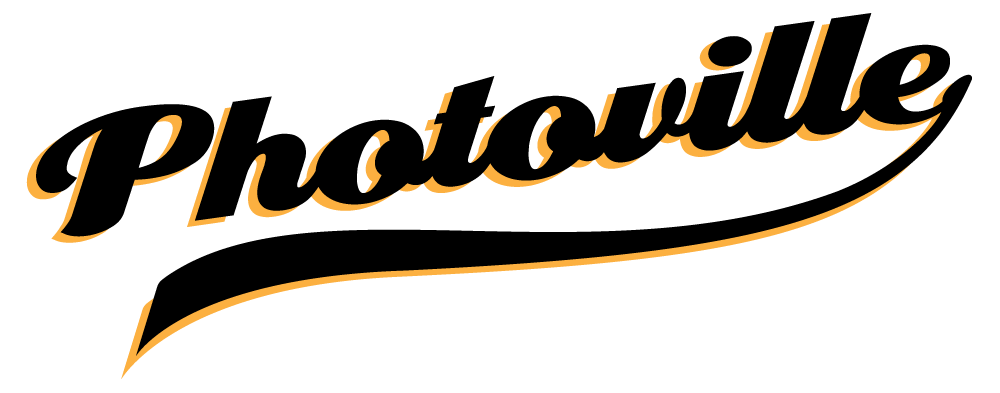
Photoville
Founded in 2011 in Brooklyn, NY, Photoville was built on the principles of addressing cultural equity and inclusion, which we are always striving for, by ensuring that the artists we exhibit are diverse in gender, class, and race.
In pursuit of its mission, Photoville produces an annual, city-wide open air photography festival in New York City, a wide range of free educational community initiatives, and a nationwide program of public art exhibitions.
By activating public spaces, amplifying visual storytellers, and creating unique and highly innovative exhibition and programming environments, we join the cause of nurturing a new lens of representation.
Through creative partnerships with festivals, city agencies, and other nonprofit organizations, Photoville offers visual storytellers, educators, and students financial support, mentorship, and promotional & production resources, on a range of exhibition opportunities.
For more information about Photoville visit, www.photoville.com
The World’s Most Remote Film Festival
Featuring: Salym Fayad
Locations
View Location Details Download a detailed map of this location Brooklyn Bridge Park – Emily Warren Roebling Plaza1 Water St
Brooklyn, NY 11201
This location is part of Brooklyn Bridge Park
Explore other locations and exhibitions nearby
The views and opinions expressed in this exhibit are those of the exhibition artists and partners and do not necessarily reflect the views or positions of Photoville or any other participants and partners of the Photoville Festival.
